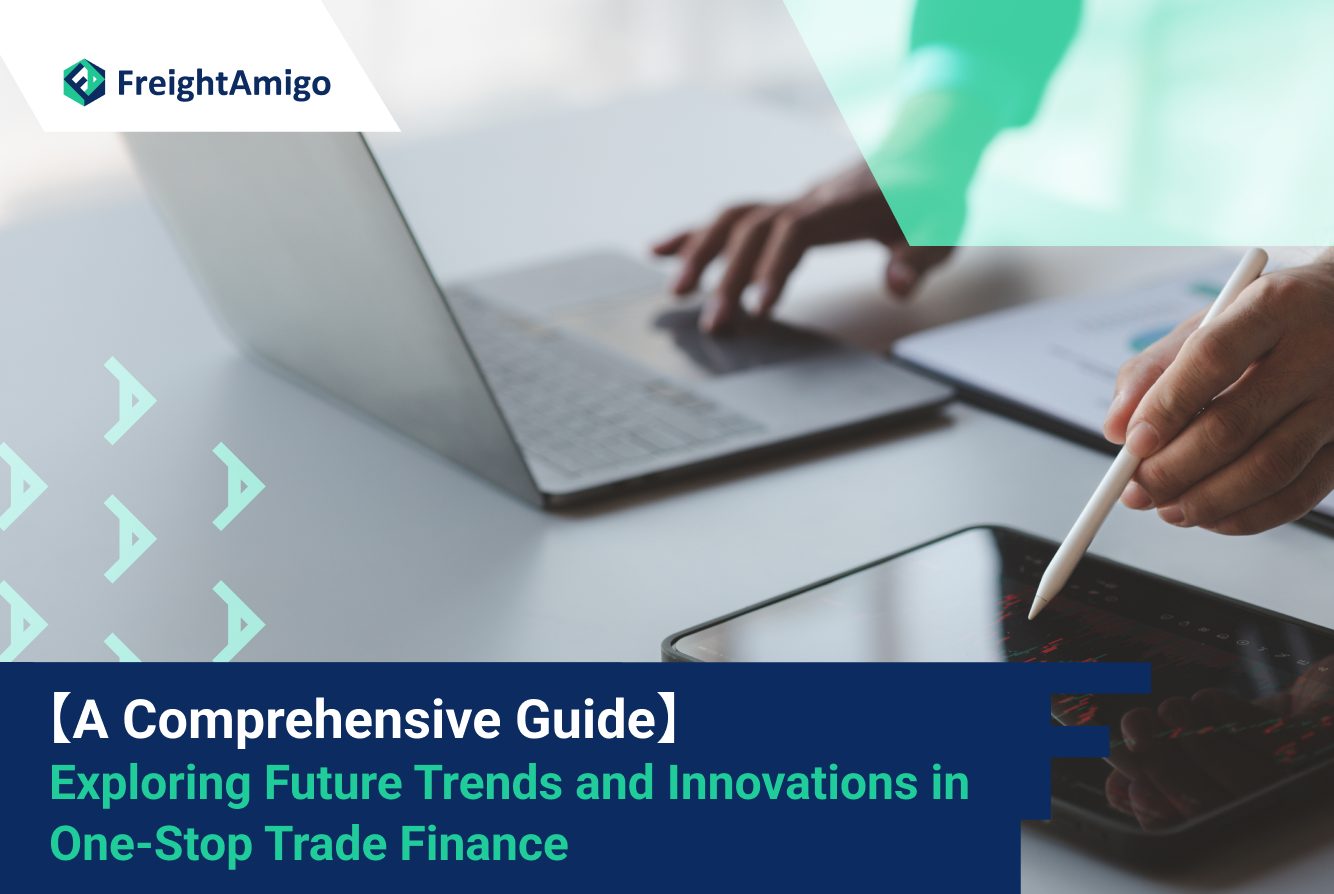Author Name: Tiffany Lee – Marketing Analyst at FreightAmigo
Trade finance represents a pivotal part of the global economy, enabling companies of all sizes to engage in international commerce. It’s a vast field, encompassing everything from letters of credit and bills of lading to advanced financial instruments like derivatives.
At its core, trade finance is all about mitigating risk. Whether it’s a small business looking to secure funding for a new project or a multinational corporation managing complex global trade flows, trade finance provides the tools necessary to ensure smooth transactions. But while the principles of trade finance may be timeless, the methods and instruments used are anything but static.
Want to compare the best Express, Air Freight, Sea Freight, Rail Freight & Trucking rates so as to have better control on cost?
Understanding Smart Contracts in Trade Finance
Smart contracts are a revolutionary technology that has the potential to fundamentally change the way trade finance operates. These digital contracts are self-executing, meaning they automatically carry out the terms agreed upon by the parties involved. This automation reduces the need for intermediaries, streamlining transactions and reducing costs.
In the context of trade finance, smart contracts offer a range of potential benefits. For instance, they could be used to automatically release funds once goods have been delivered, eliminating the need for manual verification. They could also be used to manage complex global trade flows, with smart contracts automatically adjusting to changes in exchange rates or other variables.
However, while the potential of smart contracts is vast, their implementation in trade financing is still in its early stages. There are technical and regulatory challenges to overcome, and widespread adoption will require the development of new standards and protocols. Nonetheless, it’s clear that smart contracts represent a significant future trend in trade financing.
The Rise of Decentralized Finance in Trade Finance
Decentralized finance, or DeFi, is another emerging trend that’s set to shake up the world of trade finance. DeFi refers to the use of blockchain technology to create decentralized platforms for financial transactions. These platforms operate without the need for traditional financial intermediaries like banks, offering a more democratic and inclusive approach to finance.
In the world of trade finance, DeFi could offer a host of benefits. For SMEs, for instance, DeFi platforms could provide a more accessible and affordable source of finance, helping to bridge the SME finance gap. For larger companies, DeFi could offer a more efficient way to manage global trade flows, with blockchain technology providing transparency and security.
Like smart contracts, DeFi in trade finance is still in its infancy. There are significant challenges to overcome, including regulatory issues and concerns about security and scalability. However, as these issues are addressed, it’s likely that DeFi will play an increasingly important role in the future of trade finance.
The Future of Digital Trade Finance
Digital trade finance represents the next frontier in international commerce. As technology continues to advance, we’re likely to see a host of new innovations and trends emerge. From artificial intelligence to big data analytics, these technologies have the potential to revolutionize trade finance, offering new opportunities for efficiency and growth.
One area where digital technology is already making a significant impact is in the management of global trade flows. Advanced data analytics can help companies monitor and manage their global supply chains, identifying potential risks and opportunities. Meanwhile, AI can automate many of the routine tasks involved in trade finance, freeing up staff to focus on more strategic activities.
But while digital trade finance offers many potential benefits, it also presents new challenges. Cybersecurity is a major concern, with companies needing to ensure their digital platforms are secure. There are also regulatory issues to consider, with governments around the world grappling with how to govern this new digital frontier.
Innovations in Trade Finance: What to Look For
As we look to the future of trade finance, there are several key trends and innovations to watch out for. The first is the continued rise of smart contracts and DeFi. As these technologies mature, they’re likely to become increasingly integral to the world of trade finance.
Another key trend is the growing use of AI and data analytics. These technologies offer the potential to greatly enhance the efficiency and effectiveness of trade finance, helping companies to better manage their global trade flows. Keep an eye on how these technologies are being used, and how they’re evolving.
Finally, it’s important to watch for developments in regulation. As trade finance becomes increasingly digital, there will be new regulatory challenges to overcome. Governments and international organizations will need to develop new frameworks to govern these digital platforms, and it’s important to stay abreast of these developments.
How Smart Contracts and Decentralized Finance are Changing the Game
Smart contracts and DeFi are already starting to change the game in trade finance. By automating transactions and eliminating the need for intermediaries, these technologies are streamlining trade finance and reducing costs. They’re also opening up new opportunities for SME finance, helping to bridge the finance gap for small and medium-sized businesses.
At the same time, these technologies are helping to increase transparency and security in trade finance. Blockchain technology, which underpins both smart contracts and DeFi, provides a secure and transparent platform for transactions. This can help to reduce fraud and corruption, and increase trust in the system.
While there are still challenges to overcome, it’s clear that smart contracts and DeFi are set to play a major role in the future of trade finance. As these technologies mature, they’re likely to become even more integral to the world of international commerce.
Challenges and Opportunities
The future of trade finance is full of both challenges and opportunities. On the one hand, the rise of digital technologies presents new opportunities for efficiency and growth. On the other hand, these technologies also present new challenges, from cybersecurity concerns to regulatory issues.
One of the key challenges in the future of trade finance will be ensuring the security of digital platforms. As trade finance becomes increasingly digital, it will be essential to ensure these platforms are secure. This will require investment in cybersecurity infrastructure and the development of new security protocols.
At the same time, there will be significant opportunities. The rise of digital trade finance opens up new possibilities for SME finance, helping to bridge the finance gap for small and medium-sized businesses. It also offers the potential for more efficient and transparent management of global trade flows, helping companies to navigate the complexities of international commerce.
Conclusion
As we look to the future of trade finance, it’s clear that change is on the horizon. From the rise of smart contracts and DeFi to the growing importance of AI and data analytics, new trends and innovations are reshaping the world of international commerce.
To prepare for this future, companies will need to stay abreast of these changes, investing in new technologies and adapting their strategies accordingly. It will also be important to engage with regulators, working to shape the new regulatory frameworks that will govern digital trade finance.
The future of trade finance may be uncertain, but it’s also full of potential. By embracing these changes, companies can position themselves to thrive in this new digital frontier, taking advantage of the new opportunities on offer and overcoming the challenges that lie ahead.
There are different options for cargo transportation. If you want to choose the most convenient and suitable solution, it is best to have the full support of logistics experts! If you are planning to ship goods overseas, please go to the FreightAmigo page for inquiries.
===
Read More:
【Southeast Trade Market】Understanding the Rise and Exploring Opportunities
===
If you have any inquiries on logistics/supply chain, feel free to contact FreightAmigo now:
Chat with us online OR
Phone : +852 28121686
WhatsApp: +852 27467829









































